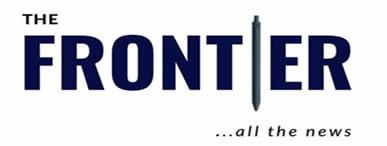•Inflation rate
Inflation closed 2023 at a 21-year high of 28.92 per cent, the National Bureau of Statistics has disclosed.
In December 2023, Nigeria’s headline inflation rate rose to 28.92 per cent from 28.20 per cent in November 2023. This signified a 0.72 percentage point increase when compared to November 2023.
According to inflation data from the Central Bank of Nigeria starting from 2003, December’s 28.92 per cent inflation rate is officially the highest recorded. The previous was 28.2 per cent recorded in August 2005 and November 2023.
The NBS revealed this in its ‘Consumer Price Index (December 2023)’ published today.
It said, “On a year-on-year basis, the headline inflation rate was 7.58 per cent points higher compared to the rate recorded in December 2022, which was 21.34 per cent. This shows that the headline inflation rate (year-on-year basis) increased in December 2023 when compared to the same month in the preceding year (i.e., December 2022).
“Furthermore, on a month-on-month basis, the headline inflation rate in December 2023 was 2.29 per cent, which was 0.20 per cent higher than the rate recorded in November 2023 (2.09 per cent). This means that in December 2023, the rate of increase in the average price level is more than the rate of increase in the average price level in November 2023.”
Major contributors to inflation were food and non-alcoholic beverages (14.98 per cent), housing, water, electricity, gas and other fuel (4.84 per cent), clothing and footwear (2.21 per cent), transport (1.88 per cent), furnishings and household equipment and maintenance (1.45 per cent), and education (1.14 per cent).
Food inflation continues to outperform general inflation. In December 2023, the food inflation rate was 33.93 per cent.
Nigeria is facing its worst cost of living crisis, with year-on-year inflation refusing to slow down in 2023. While inflation didn’t hit 30 per cent as predicted by many experts, it has been blamed for rising poverty rates in the county.
Between January and May 2023, inflation pushed an estimated four million people into poverty in the country, according to the World Bank.
In a November report, the Bretton Woods institution disclosed that the continued spike in inflation would push a further 2.8 million people into poverty by 2023’s end.
The removal of fuel subsidy and the foreign exchange rate unification policy have been blamed for the surge in the country’s inflation. In the December update of its Nigeria Development Update report, the global revealed that since May, petrol prices had increased by an average of 163 per cent and the naira had depreciated against the US dollar by 41 per cent in the official market and by 30 per cent in the parallel market.
These, it alluded, have combined to push inflation upwards with higher prices of gasoline and other imported goods.
In a December update, global rating agency, Moody, disclosed that the continued rise in inflation in the country has the potential to lead to social unrest.
It said, “Increasingly high inflation generates spending pressure on the government and raises social risks, while the extent of fiscal relief from the removal of the oil subsidy remains unclear at this stage.”























